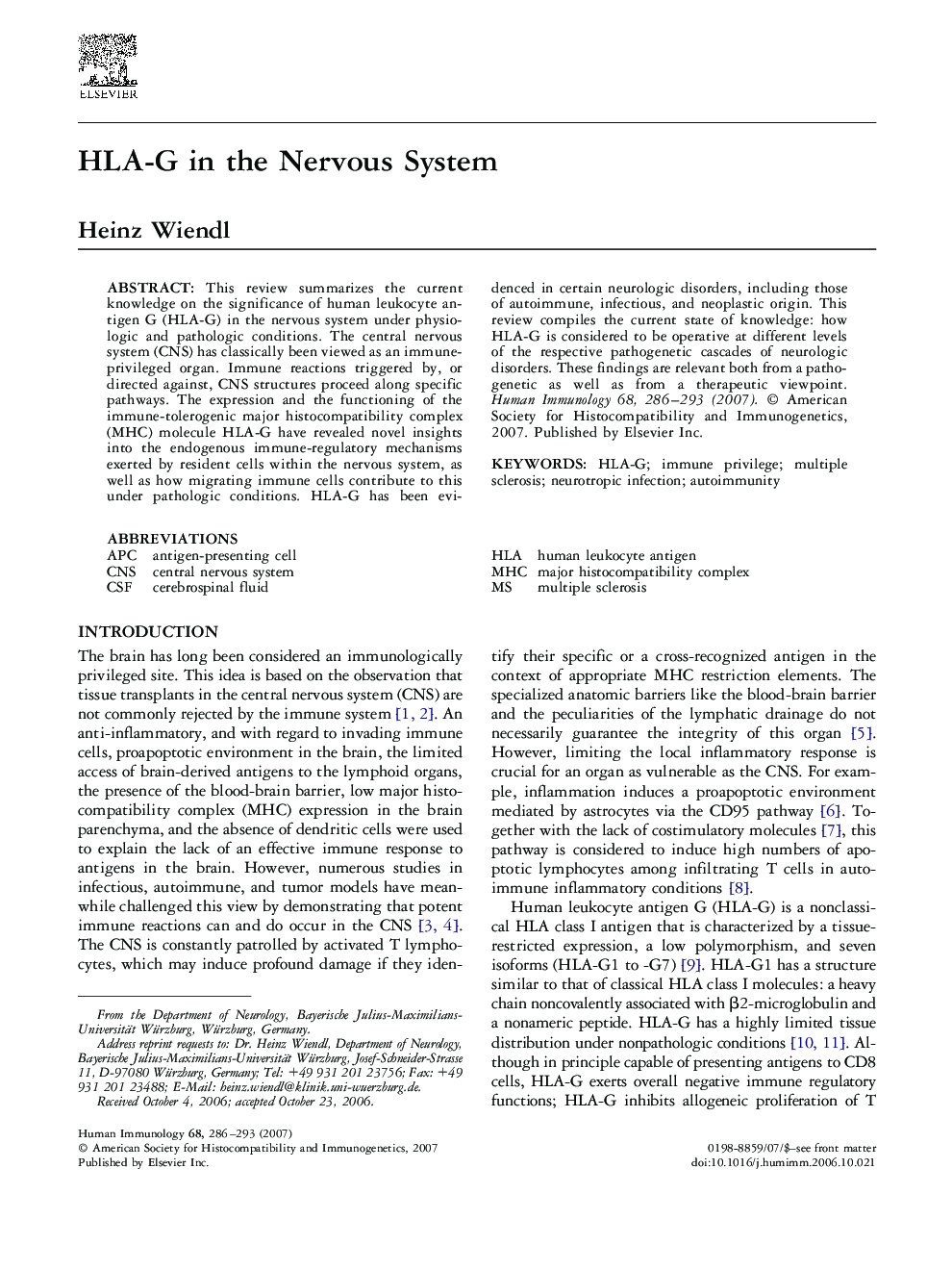| Article ID | Journal | Published Year | Pages | File Type |
|---|---|---|---|---|
| 3352394 | Human Immunology | 2007 | 8 Pages |
This review summarizes the current knowledge on the significance of human leukocyte antigen G (HLA-G) in the nervous system under physiologic and pathologic conditions. The central nervous system (CNS) has classically been viewed as an immune-privileged organ. Immune reactions triggered by, or directed against, CNS structures proceed along specific pathways. The expression and the functioning of the immune-tolerogenic major histocompatibility complex (MHC) molecule HLA-G have revealed novel insights into the endogenous immune-regulatory mechanisms exerted by resident cells within the nervous system, as well as how migrating immune cells contribute to this under pathologic conditions. HLA-G has been evidenced in certain neurologic disorders, including those of autoimmune, infectious, and neoplastic origin. This review compiles the current state of knowledge: how HLA-G is considered to be operative at different levels of the respective pathogenetic cascades of neurologic disorders. These findings are relevant both from a pathogenetic as well as from a therapeutic viewpoint.
